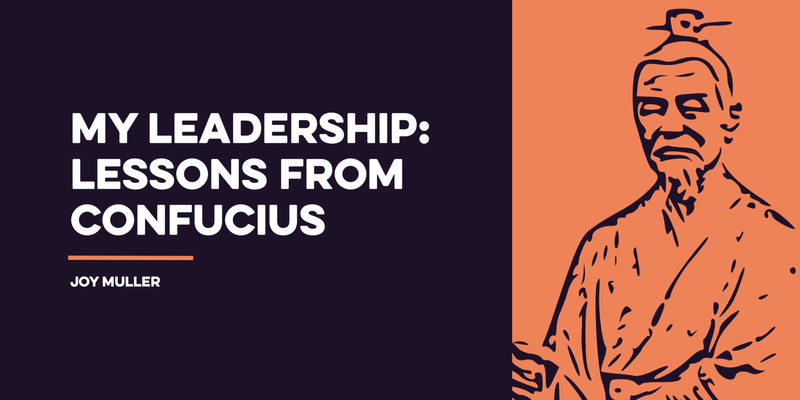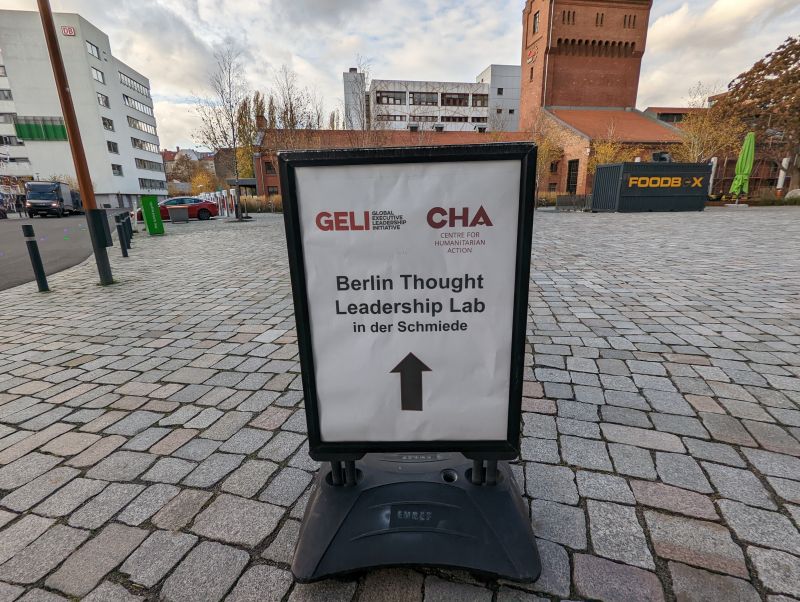
I have a duty to keep learning and find lasting solutions. How else will I hand over a world better than the one I inherited?
Leaders need to be conscious about their knowledge and their own limits. To go beyond these limits, they must employ the essential tools of empathy and continuous learning. Leaders will then gain the courage and confidence to make positive change happen. This is the only way forward.
My Early Lessons
I come from East Asia, where Confucius and his sayings have continuous influence over society, both socially and ethically. In Tainan, in the neighborhood I grew up in, stands a Confucius Temple. Built in 1666, it was the first Confucian temple in Taiwan and the most prestigious official institute of higher learning at that time.
The philosophy of Confucius remains deeply rooted in people’s minds and influences their way of thinking and living. A common East Asian and Confucian-inspired saying is “You know what you know. You also know that you don’t know what you don’t know.” This saying is often a reminder to us from parents and teachers, particularly when we are young and think we know everything.
Indeed, how can we learn and progress without acknowledging that we don’t know what we don’t know?
Lifelong learning
I feel alive when I learn. I apply new knowledge for solutions — this is what inspires me to keep learning.
An effective leader must keep learning in order to address issues with a multidisciplinary approach. They must be open-minded and curious. For the humanitarian sector to be more effective, this is essential, as learning will equip practitioners with required lenses to look into challenges across sectors.
I have always been fascinated by the “Do no Harm” principle. It was inspired by the medical world and dates back to the Hippocratic Oath. In the 1990s, Mary Anderson introduced it for humanitarian action, as an approach to working effectively in conflict-affected situations.
The three-word term, “Do no harm,” seems simple on paper, but not in reality for humanitarian actors. Motivated by this principle, I ask myself: What is needed for making informed decisions? How can I avoid unforeseen negative consequences? How can I make sure that our action in humanitarian, development, and peace fields and the policies that we make will absolutely “do no harm” to the people that we intend to support? I take conscious steps to learn, to educate myself in order to apply this concept in practice.
However, what I have also discovered is that continuous learning takes empathy.
Empathy
Many problems that leaders are facing today are multicausal and interdependent. They do have one thing in common: their consequences are often socially complex. Leaders need to put themselves in the shoes of the people that they serve, consult, and learn to find better-suited and durable solutions.
I remember a woman saved from a super Typhoon in South-East Asia. She lost everything to the typhoon, including her entire family, house, and belongings. She desperately asked the humanitarian workers who saved her, “Why did you save my life?” The immediate preservation of life alone is not enough. If we, humanitarian and development actors, had put ourselves in this woman’s place, with empathy and compassion, we would have seen that saving her life was just the beginning. We would have assisted her community to recover, and worked with the local government for better policies and implementation. We would have worked towards restoring that woman’s hope and future.
With empathy, leaders will be more equipped to better comprehend and solve complex issues, such as poverty, inequality, and climate change. As they know that they don’t know what they don’t know, they will reach out for support from their team and their peers and be more open and empathetic to those affected by crises. Equally important, they will approach each situation with an openness to continuous learning.
Lessons of effective leadership
Effective leaders are accountable leaders. They are conscious about their knowledge and its limits, and understand that decision-making requires the continuous flow of knowledge woven with empathy.
My takeaways from my years in various positions within the humanitarian sector, from operations to policy:
- Acknowledge what areas require deeper understanding and find interlinkages that need attention.
- Be humble, curious, and supportive. Ask questions and exchange thoughts.
- Identify knowledge needs and internal/external experts; build an open environment for actors (including your team) to complement each other.
- Know that you don’t know what you don’t know. Keep learning and make it a daily routine. If possible, learn in a structured way by joining a programme. Keep a ‘knowledge buddy’ network for consulting and inspiring each other.
- Employ empathy to put yourself in the shoes of the people that you serve, and find durable solutions.
In closing, I wish to share another saying of Confucius as I find it reflects well what a leader could acquire through learning for results: “Education breeds confidence. Confidence breeds hope. Hope breeds peace.“






